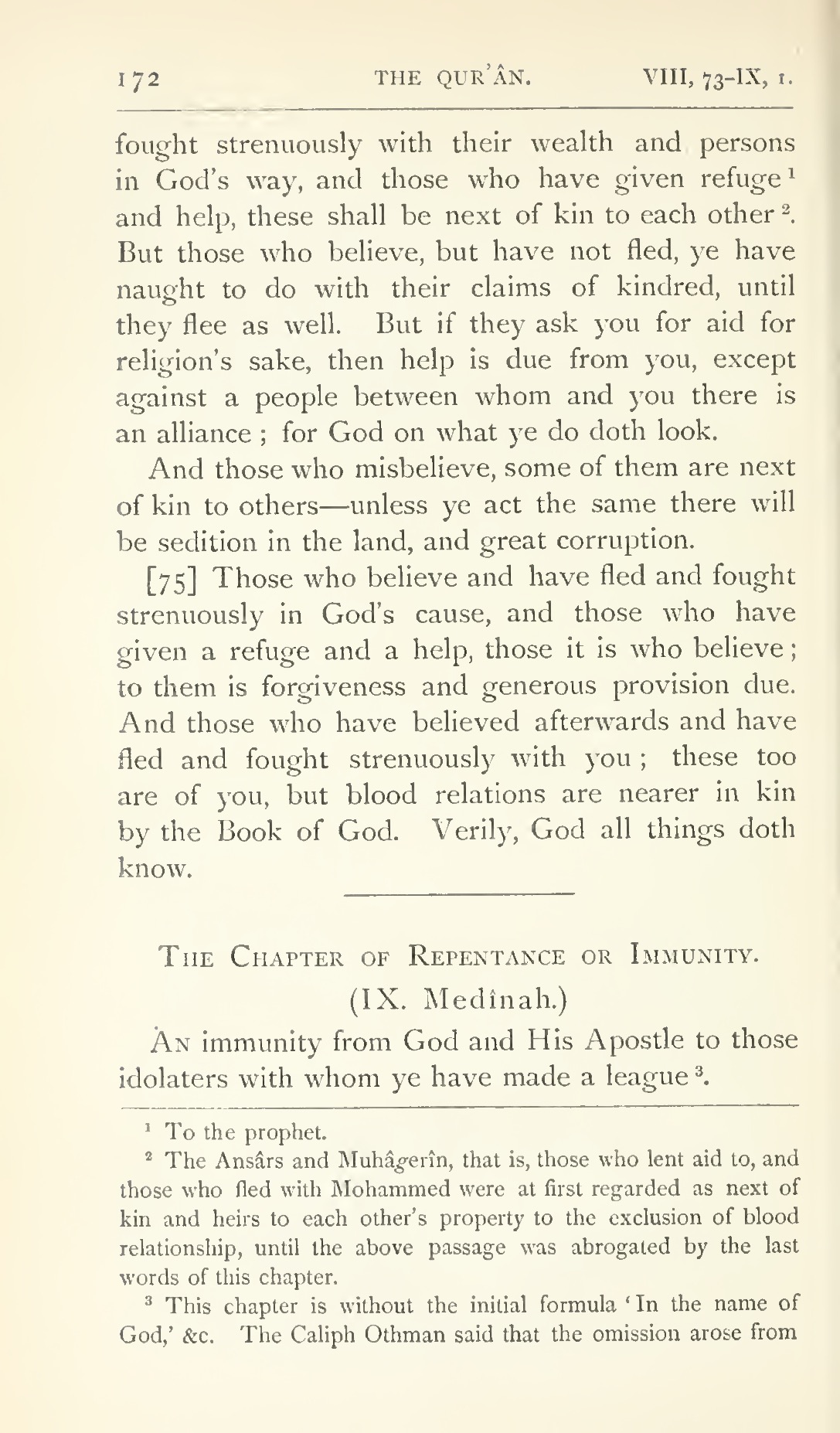Edward Palmer, The Qur’ân (1880)
fought strenuously with their wealth and persons in God’s way, and those who have given refuge 1 and help, these shall be next of kin to each other 2. But those who believe, but have not fled, ye have naught to do with their claims of kindred, until they flee as well. But if they ask you for aid for religion’s sake, then help is due from you, except against a people between whom and you there is an alliance; for God on what ye do doth look.
And those who misbelieve, some of them are next of kin to others — unless ye act the same there will be sedition in the land, and great corruption.
[75] Those who believe and have fled and fought strenuously in God’s cause, and those who have given a refuge and a help, those it is who believe; to them is forgiveness and generous provision due. And those who have believed afterwards and have fled and fought strenuously with you; these too are of you, but blood relations are nearer in kin by the Book of God.’ Verily, God all things doth know.
The Chapter of Repentance or Immunity.
(IX. Medînah.)
An immunity from God and His Apostle to those idolaters with whom ye have made a league 3.
1 To the prophet.
2 The Ansârs and Muhâgerîn, that is, those who lent aid to, and those who fled with Mohammed were at first regarded as next of kin and heirs to each other’s property to the exclusion of blood relationship, until the above passage was abrogated by the last words of this chapter.
3 This chapter is without the initial formula ‘In the name of God,’ &c. The Caliph Othman said that the omission arose from
